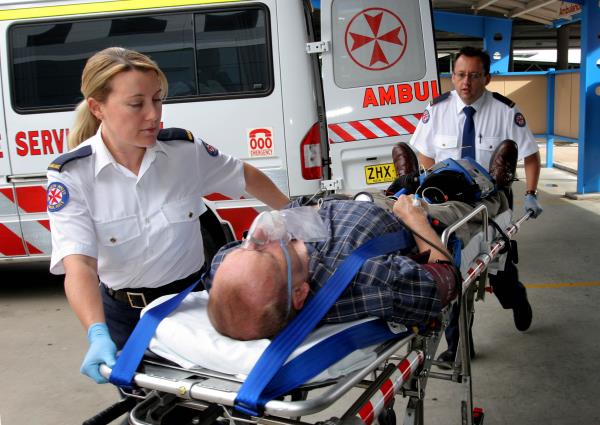THE Heart Foundation is urging Mid North Coast residents to learn the warning signs of a heart attack and reduce their risk of having one during Heart Week (4-10 May).
Heart Week is the Heart Foundation’s national awareness week that provides the opportunity to shine a spotlight on a selected heart health issue and to raise general awareness of the Heart Foundation and its role in leading the fight against cardiovascular disease in Australia.
Heart Foundation NSW CEO Kerry Doyle said each year around 55,000 Australians suffer a heart attack.
“Sadly around 10,000 Australians die of a heart attack every year and thousands more risk permanent heart damage or disability because they didn’t seek medical help quickly enough,” Ms Doyle said.
“We’re pleading with Australians to avoid becoming a statistic by doing two things – find out their risk of heart attack by visiting their doctor and learn the warning signs by visiting heartattackfacts.org.au.
“Heart attack warning signs aren’t always what you think – symptoms are not necessarily sudden or severe and some people don’t experience chest pain at all.
“If you think you could be having a heart attack, call Triple-zero (000) immediately, because the longer you wait, the more your heart muscle dies.
“The first step people can take to help prevent a heart attack is to find out their risk of having one.
“More than one million Australians aged 30-65 are at high risk of having a heart attack – but they may not even know it.”
Risk factors like high blood pressure, high cholesterol and smoking increase the chance of having one.
“We’re asking people to please visit or book an appointment with their doctor during Heart Week and ask for a heart health check to assess their risk of having a heart attack in the next five years,” Ms Doyle said.
Heart attack warning signs may include pain, pressure, heaviness or tightness in one or more parts of the upper body (chest, neck, jaw, arms, shoulders or back) in combination with other symptoms of nausea, shortness of breath, dizziness or a cold sweat.
For more information, visit heartattackfacts.org.au


